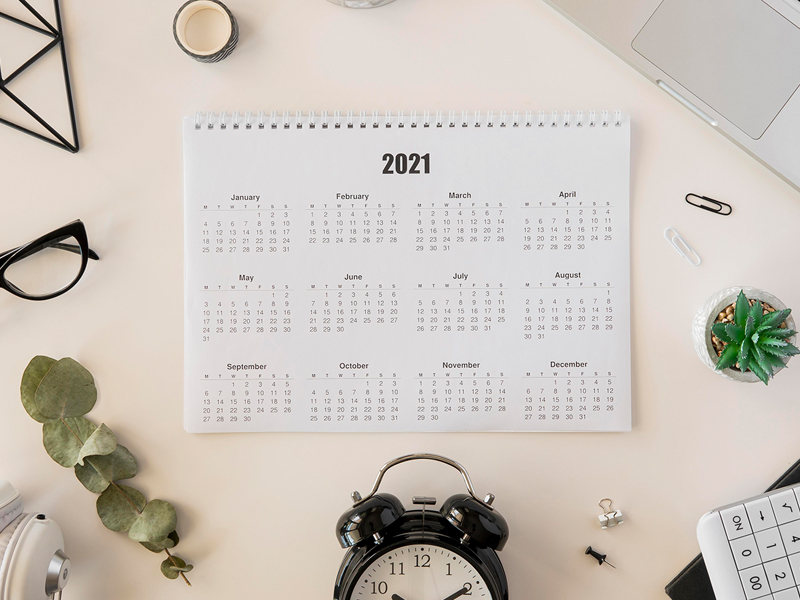The new year is approaching, and most people are ready to say goodbye to 2020 forever. It’s the perfect time to make your new years’ resolutions. Whether that be to lose weight, join a gym, eat healthier – or set a budget to achieve your financial goals.
While most resolutions last until February, your financial goals should be your number one priority for the rest of your life, so you’ll need to make sure they are good ones. Whether you want to save for a holiday, pay off your mortgage to buy those new pair of designer jeans you’ve had your eye on for a while now, how do you plan a budget – and stick to it?
Set realistic goals
When setting goals, making them realistic and achievable is the first step to keeping to a budget that sticks. There’s no use setting yourself up for failure, which is where a lot of people become unstuck. Instead, set SMART goals.
SMART is a helpful guide to realistically achieve your goals. Each letter stands for a step in accomplishing a goal. Many businesses use this method and it’s also great for individuals to help guide them as well. Your goals should be clear and specific, otherwise they will be too vague for you to follow with any level of success. Setting SMART goals helps to clarify your ideas, focus your efforts and use your time and resources effectively.
What Does SMART Stand For?
S – Specific
Your goals need to be simple, sensible and significant. You should consider what you want to accomplish, why this is important for you, who you need to involve or get help from and which resources are involved. For example, you may seek the assistance of a financial advisor to help you work out where all your income is coming from and your total expenditure. You might find purchasing a financial or budgeting app is helpful for you to achieve your goals. It takes many people to make a winning plan. Success is not measured on one person’s shoulders so there’s no need to think you need to go it alone. Good help is out there.
M – Measurable
It’s important to measure and track your goals which will help you stay motivated. Want to save up $200 for the latest pair of running shoes? Even setting aside a jar and placing $10 a week will help you track your savings and see how much you have saved. This can be upscaled to opening a special savings fund to save for a house or car deposit and making regular payments into it. You’ll need to work out how much money you need to set aside to achieve your financial goal.
Click here to make an appointment with an ITP Tax Accountant

A – Achievable
Your financial goals must be achievable and attainable to be a success. It should stretch your abilities, but also remain possible. Consider how you will accomplish your goals, what systems you need to set in place and what your constraints are. As an example, you might open a special savings fund and ask your boss to pay part of your wage directly into it to make saving easier if you find it hard to do that yourself. You’ll need to consider what your options are, and this will be different for everyone.
R – Realistic
It’s important to seek support and advice to achieve financial goals, but it’s important to retain control over them. Make sure your plan drives your forward, but you need to understand that it is entirely up to you to make sure you stay on track. Take some time out and go over your plan and re-evaluate your goals. Has something come up in the meantime that is more urgent?
Consider if your plan is worthwhile, is it the right time to achieve them and does the effort match the outcome. How important is it that you buy that new boat if you need a car to get to work? A financial advisor will help you work out all these goals with a primary, secondary and maybe tertiary achieve set of plans. It’s important to prioritise your goals.
T – Timely
Every goal needs an end date. Just like footy finals, you must have something to work towards. This will help you prioritise your everyday savings to reach your overall financial goal. A time-bound goal will help you work out when you want or need to achieve your success, what time frame is reasonable, and what you need to do day by day to get there.
Download this article: Create a New Years Budget that sticks
Assess Your Current Financial Position
To be able to set goals, you’ll need to look at where you are now. Just like staring into the sparkly depths of a pool beneath your feet, you need to get your toes on the edge of the diving board before taking the plunge. Look at your savings, debts and investments. If this is stressful for you, you might consider reaching out to a professional for help. Even if you’re in debt, don’t sweep it under the carpet. Understanding where you stand will help you to create realistic forward-moving gaols.
Pay Off Debt
You need to consider what’s important. It’s easy to get carried away with thoughts of brand spanking new cars or jet-setting across to Paris, but the simple truth is to secure a stable financial future, it’s best to work out a way to pay off your debts first. Debt is a significant burden and can prevent you from achieving your financial dreams. There’s no time like the present to start paying off your debts then you’ll have the capital to invest in your future.
Stay Organised
With all good plans, the ones that succeed are the ones that are looked at regularly. If you treat your plan like yesterday’s newspaper, you’ll never achieve your goals. Your plan is a working, breathing, living thing that will need to be adjusted, changed and altered. It is something you will need for life! Set aside a plan-date night one a month and make sure you’re on the right track. Just like any good relationship, it needs to be tended. Romance your plan! The more organised and dedicated you are, the better off you’ll be.
Emergency Fund
There’s no doubt that sometimes life throws lemons your way. You can choose to let them sour you, or you can make lemonade and chalk your experiences to make something stronger. Establishing an emergency fund will help ease you through emergencies. Without an emergency fund, any best-laid plan will fall apart. An emergency fund will protect you without you needing to head to the bank and incurring more debt.
A good emergency fund should be at least 2 to 3 months’ worth of expenses. It might take a while to establish, but you’ll gain the personal freedom and will be worth the short-term pain.
A good budget isn’t about complicating your life. It’s about knowing and understanding where you derive your income and where cash goes out. A new year brings a host of possibilities for everyone. What do you want to achieve in 2021? Consider your financial goals and take the right steps to achieve them.
Need a little help? ITP financial advisors have helped Australian individual and businesses reach their financial goals for fifty years. Phone 1300 136 729 and chat with a friendly financial advisor today.
